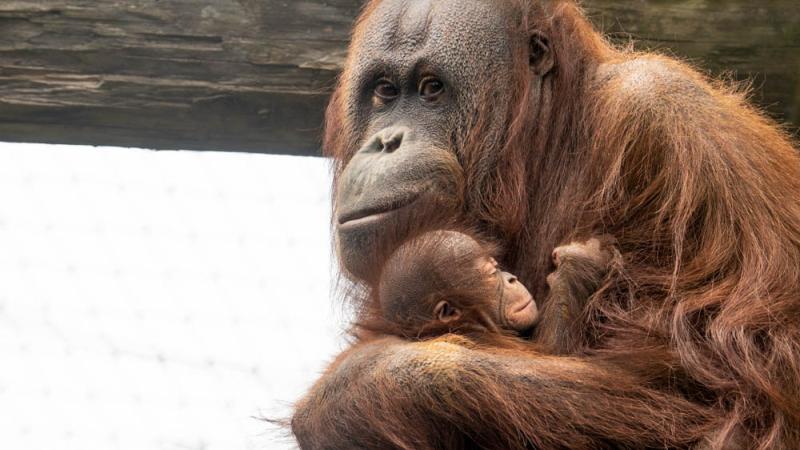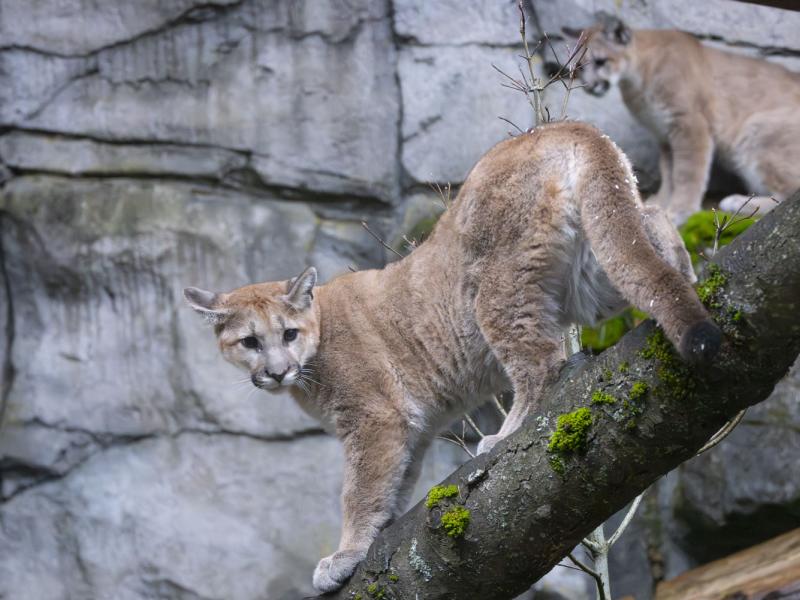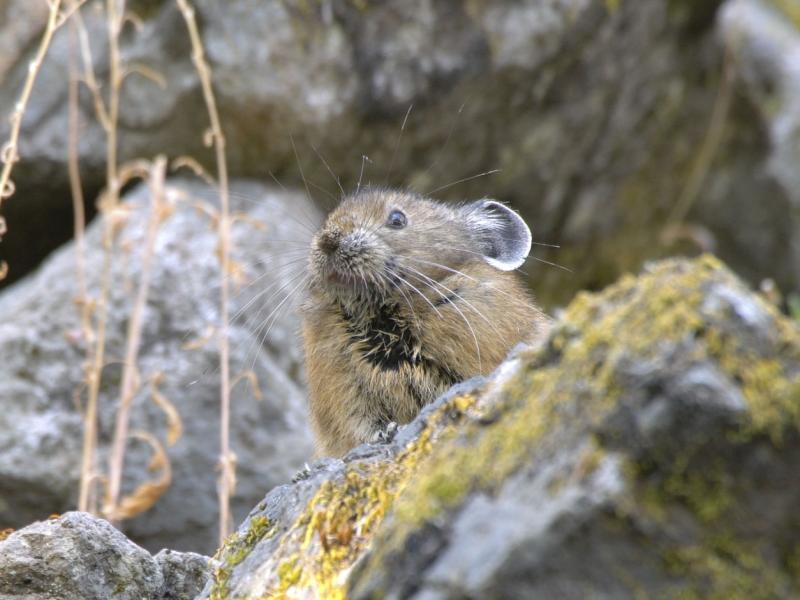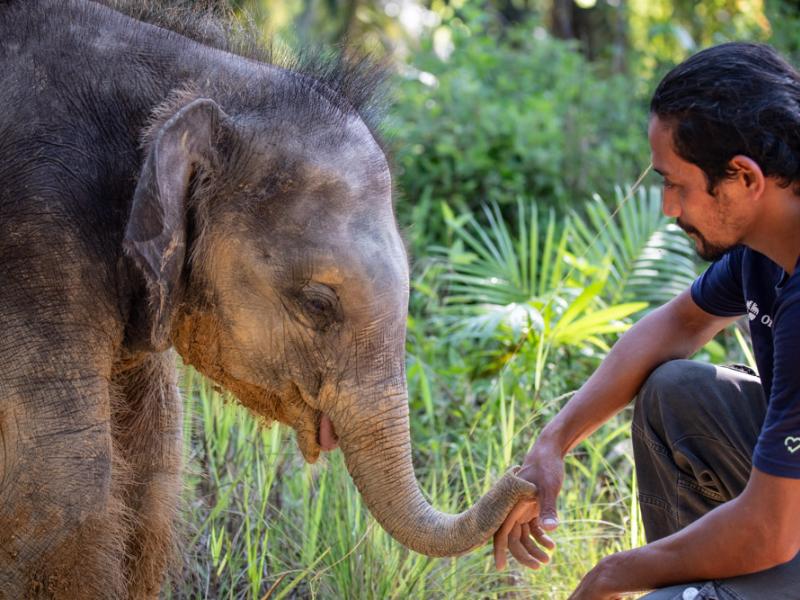It's a girl! Orangutan baby 'Jolene' makes zoo debut

Kitra’s 3-week-old baby is named for her ‘flaming locks of auburn hair’
After a few weeks of consideration, care staff have selected a name for orangutan Kitra’s new baby. Inspired by the line in the Dolly Parton classic that goes, “Your beauty is beyond compare / with flaming locks of auburn hair,” she will be called Jolene.
“Because we’re giving Kitra and her baby plenty of room to bond, we were unable to tell if she’d had a boy or a girl until recently,” said Kate Gilmore, who oversees the zoo’s primate area. “Once we confirmed she was a girl, our keeper team knew right away what they wanted to call her. They’ve been playing the song on repeat ever since!”
With May sunshine on the horizon, the auburn-haired youngster and her mom are spending more time in their outdoor habitat. Gilmore says visitors to the zoo should be able to catch a glimpse of the pair on most days, though the choice is always up to Kitra.
“Kitra can decide whether she and Jolene are up for a trip outside or if they’d rather have privacy,” Gilmore said. “As Jolene gets older and more curious, we expect them to be outside more and more.”
Jolene was born on April 13 to first-time mom Kitra. Care staff worked with Kitra throughout her pregnancy to help her prepare for motherhood, but according to Gilmore, the 20-year-old Bornean orangutan hasn’t needed much help.
“We’ve never been so happy to put in hours of work on something that didn’t happen,” said Gilmore. “We were prepared to step in if Kitra needed us, but she’s done everything perfectly on her own so far.”
Orangutan babies are born after a gestation period of around 8.5 months and typically weigh a little over 3 pounds at birth. Young orangutans are completely dependent on their moms for food and getting around during their first two years of life. The bond between an orangutan mom and her baby is one of the closest of any species.
Kitra moved to the Oregon Zoo in 2015 from Cleveland Metroparks Zoo, joining male orangutan Bob, the baby’s father, who had arrived from South Carolina’s Greenville Zoo the previous year. The moves were based on a recommendation from the Association of Zoos and Aquariums’ Species Survival Plan for orangutans. The AZA has established SSPs for many threatened or endangered species — cooperative programs that help create genetically diverse, self-sustaining populations to guarantee the long-term future of these animals. The SSPs also support relevant field projects, research and public education.
Orangutans are critically endangered, largely because of habitat loss driven by logging and the conversion of forests into oil palm plantations. Around 90% of the world’s palm oil is produced on the only two islands where orangutans live. When orangutans lose habitat, they also become easy targets for hunters, who often capture young orangutans for the illegal pet trade.
The name “orangutan” comes from the Malay “orang,” meaning man, and “hutan,” meaning forest or jungle. According to senior keeperAsaba Mukobi, many zoo visitors are struck by the orangutans’ close resemblance to humans.
“Orangutans share nearly 98% of their DNA with humans, and visitors feel a close connection to them,” Mukobi said.
People interested in encouraging major companies to pursue wildlife-friendly palm oil can do so through the Oregon Zoo’s Use Your Reach project at oregonzoo.org/reach. The zoo also supports the Borneo-based Hutan-Kinabatangan Orangutan Conservation Program, which works to research, protect and reduce human-wildlife conflict for species including orangutans and elephants. For more information, visit hutan.org.my.
More News

Rescued cougar cubs are venturing out
A pair of orphaned cougar cubs, rescued and brought to the zoo by Washington Department of Fish and Wildlife staff in November, have begun exploring their outdoor habitat.April 17, 2025

Zoo seeks pika watchers for summer season
The Oregon Zoo is recruiting volunteers for Cascades Pika Watch.April 15, 2025

Zoo convenes action for imperiled elephants
Sabah government representatives joined conservation NGOs, local communities, palm oil producers, and tourism operators this week in the fight to save the world’s smallest elephants from extinction.April 11, 2025

